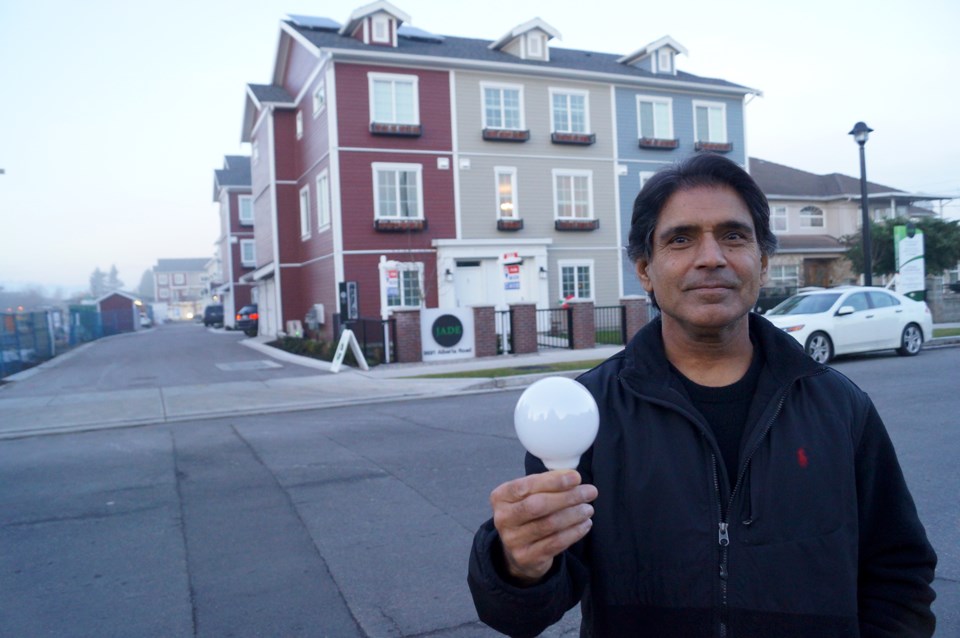Developers in Richmond are voicing concerns that the city’s new energy efficiency bylaws for new townhomes are another added cost to development.
The City of Richmond now wants to require developers to build townhomes according to the Energy Star for New Homes standard, which would allow builders to access rebates from BC Hydro ($700) and FortisBC (unannounced).
The change is said to be a small departure from the city’s existing EnerGuide 82 requirements, according to a city staff report. The ESNH would only accomplish EnerGuide 81 standard but the difference would be made up for via another set of requirements (such as minimum performances for space heating).
Urban Design Institute member and local developer Dana Westermark (Oris) said it costs about $4,000 per unit to meet EnerGuide 82 rating.
“Stakeholder representatives from both UDI and the Richmond Small Builders Association noted the expense of meeting the EnerGuide 81 standard, highlighting the cost of contracting an energy advisor,” stated a city staff report.
Developers note that extra costs for energy efficiency are ultimately accounted for in the overall costs of a development.
Last year, the city required developers to build EnergGuide 82 rated townhomes.
The city wants to reduce its community carbon emissions by 33 per cent below 2007 levels by 2020 but that is only subject to senior government action, which can mean a plethora of things can affect such a goal.
The city also requires townhomes be solar hot water ready. Staff have told council that the city is also working on a solar panel policy. Part of that policy could incorporate a planned local carbon marketplace being designed by city planners.



